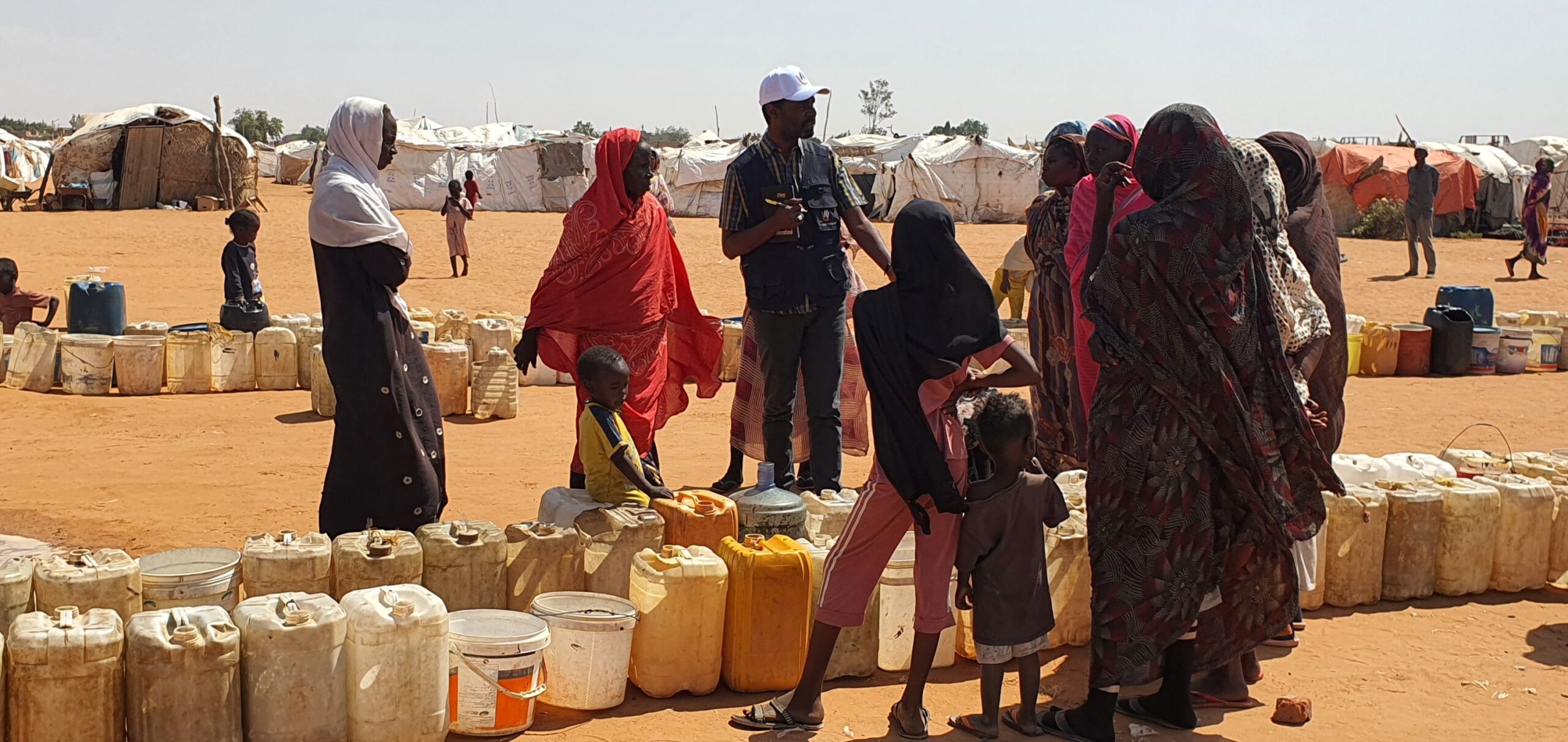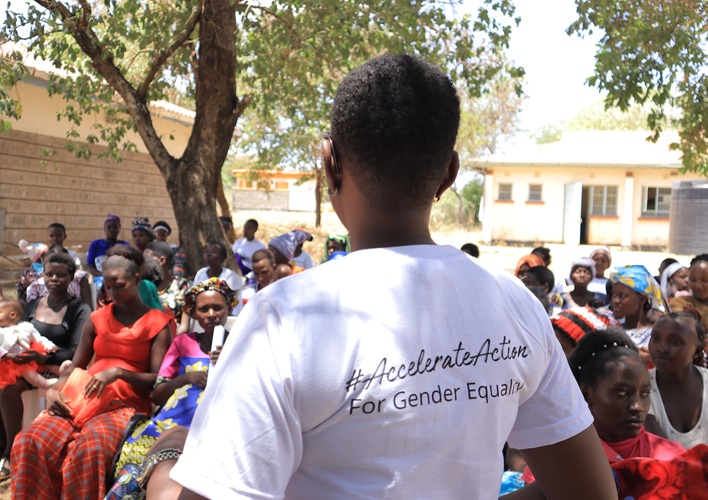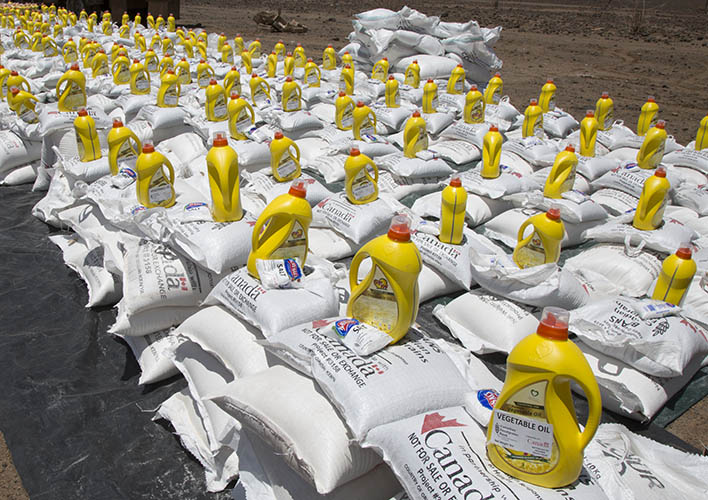In Sudan, more than 24 million people are facing severe food insecurity, with over 12 million displaced since April 2023 due to ongoing violence and conflict. These numbers represent not just statistics, but lives torn apart by a crisis that has been largely ignored by the international community.
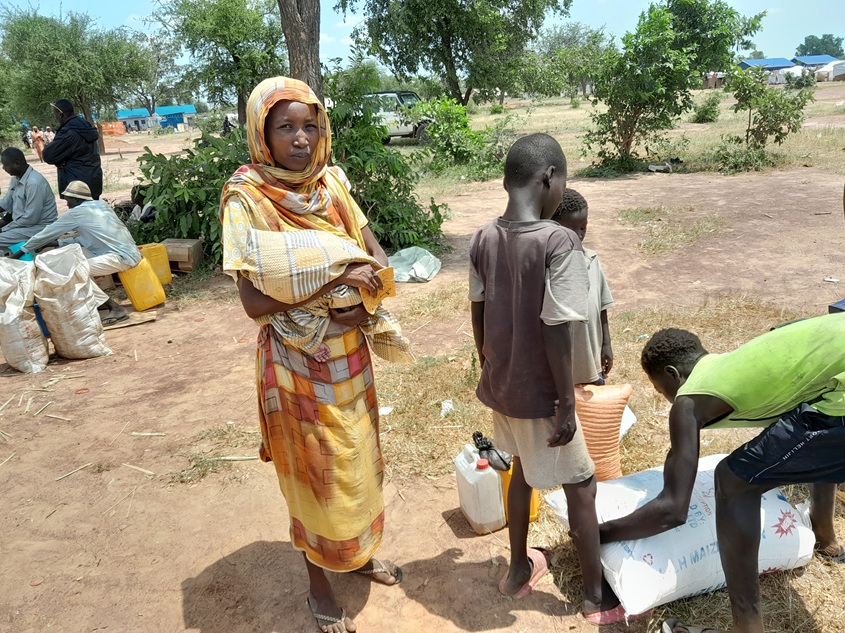
Lula Adam, with her four children, at a ration distribution centre in Wedwil refugee settlement, Northern Bahr El Ghazal. (Photo: Dee Santos)
But when your children are the ones who pay the price for this violence – you can’t ignore their pain. “My children are young, and they can’t stay hungry,” says Lula a mother living with her four children in refugee settlement.
Women and children are particularly vulnerable, facing malnutrition, disease, and the trauma of displacement as well as the risk of gender-based violence.
Every day, families are being forced to flee their homes and leave behind everything they know as they seek shelter in overcrowded refugee or displaced person camps.
This was the case for 28-year-old Lula Adam and her four children, who arrived at Wedwil refugee settlement in South Sudan after making the long arduous journey from Sudan in June 2023 – two months after the conflict had started.
“After fleeing our residence in El Obeid, it was not easy for a single parent to move with many children,” says Lula. “Some youth came to my rescue and helped me with my three boys, while I was handling their baby sister. Thank God, they escorted me to Kiir-Adem where the South Sudanese government and its partners took over us and transported us to this [refugee] settlement.”
There are over 5,000 households living at Wedwil refugee settlement – just a fraction of the one million displaced from Sudan to South Sudan.

Tearfund’s pre-packaged food rations for refugees at Wedwil refugee settlement. (Photo: Supplied)
Refugees, mostly children, women, and very elderly people, often arrive at refugee camps empty-handed, and in desperate need of basic items like food, water, shelter, clothing, and healthcare services – as well as psychosocial support for the trauma they’ve experienced.
In response, Tearfund South Sudan (partner of Tearfund Canada) provided three months of food assistance for hundreds of refugees fleeing Sudan and people returning to South Sudan, giving families like Lula’s some basic cooking items like sorghum, beans, oil, and salt.
“God is great, [because] He brought Tearfund at a time when life was so miserable for my children,” says Lula. “My children are young, and they can’t stay hungry. I am grateful for this support. At least I don’t have to worry about food for the next three months.”
For thousands of Sudanese families who manage to reach neighbouring countries, life doesn’t get easier quickly. Many have given up their livelihoods, and faced immense challenges on the path to safety.
The numbers of refugees and returnees crossing the border since April 2023 has rapidly increased, with a record one million new arrivals into South Sudan as of January 2025. And since December, around 2,000 people have been arriving daily in Renk, South Sudan, fleeing the ongoing conflict in Sudan.
For Trócaire (local partner of Development and Peace-Caritas Canada) who is also responding to the crisis in Sudan, the large influx of people coming to the Nuba Mountains to flee the start of the conflict meant all of their facilities were overwhelmed, and the pressure has only increased since then.
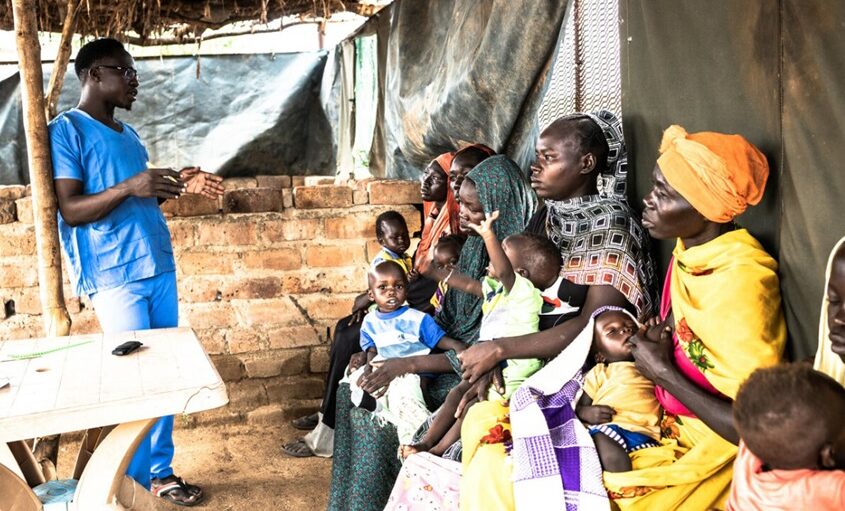
Caregivers of children with malnutrition queuing to receive nutrition services at a Trócaire supported nutrition clinic in Nuba Mountains. (Photo: Supplied)
The project, supported by Foodgrains Bank, has been implementing a wasting treatment initiative for acutely malnourished children under 5 years as well as pregnant and lactating women in South Kordofan State, Sudan, reaching nearly 9,000 individuals with support and an additional 78,000 children with vitamin A supplements.
“There are children that are 12-13 years old that look like they’re three years old – it’s because they’ve walked for days without food,” says Trócaire’s finance and operations manager Duke Nyauncho, “so you can imagine the state at which we were receiving the people coming into the region.
“This year’s going to be worse because of the famine [in Sudan]… the only corridor we have to move humanitarian aid through is South Sudan, and South Sudan is in crisis by itself.”
As the situation in Sudan continues to deteriorate, the need for international humanitarian aid has never been more urgent. Without immediate action, the lives of millions of people will remain at risk.
To donate, visit foodgrainsbank.ca/sudan.
